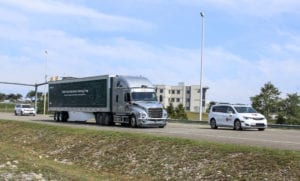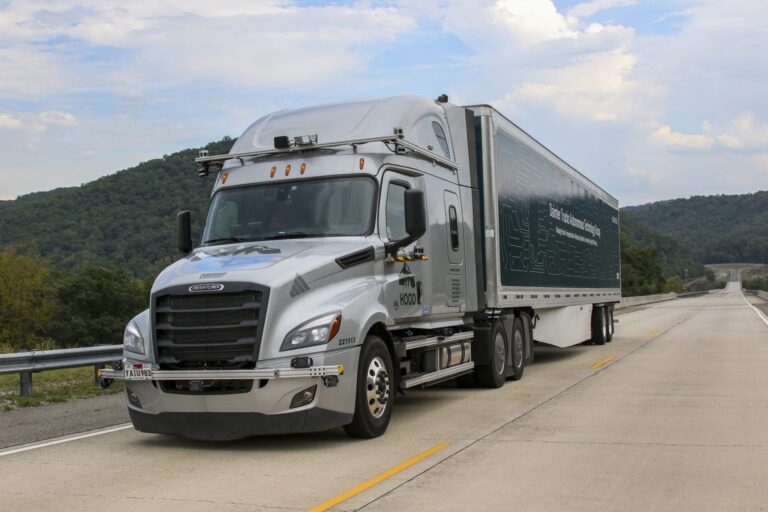Daimler Trucks and Torc Robotics have announced plans to expand testing of automated truck technology to new public routes in the USA.
The team – partners in Daimler Trucks’ Autonomous Technology Group (ATG) – completed initial mapping of additional routes in January.
According to Daimler, these public road tests allow the teams to collect data from real-world traffic scenarios beyond what can be learned from computer simulations and closed road courses.
Initial public road testing started in southwest Virginia last year, where Torc is headquartered.
ATG said it will continue to test the next generation of automated driving software in Virginia and will add the upcoming new routes to the data collecting.

This testing is part of Daimler Trucks’ and Torc’s validation approach for automated driving, which uses safety protocols aligned with the USA’s federal framework policy for testing and commercial deployment of SAE Level 4 automated trucks.
The expansion of road-testing in the USA is part of ATG’s continuing real-world application and collaboration with drivers, regulatory affairs and community stakeholders to improve road safety and efficiencies in transportation.
Dr Peter Vaughan Schmidt, head of the Autonomous Technology Group at Daimler Trucks, said: “By expanding our testing to new routes in the USA we are able to learn more, work with various partners and apply our advanced testing methods to new environments.”
All automated runs require both an engineer overseeing the system and a safety driver certified by Daimler Trucks and Torc.
All safety drivers hold commercial driver’s licenses and are specially trained in vehicle dynamics and automated systems.
As part of this research and development, Portland-based Daimler Trucks North America (DTNA) is refining a truck chassis suited for highly automated driving as well as the redundancy of systems needed to achieve safe, reliable driving.
DTNA is also researching the infrastructure required for the operational testing of initial application cases.








